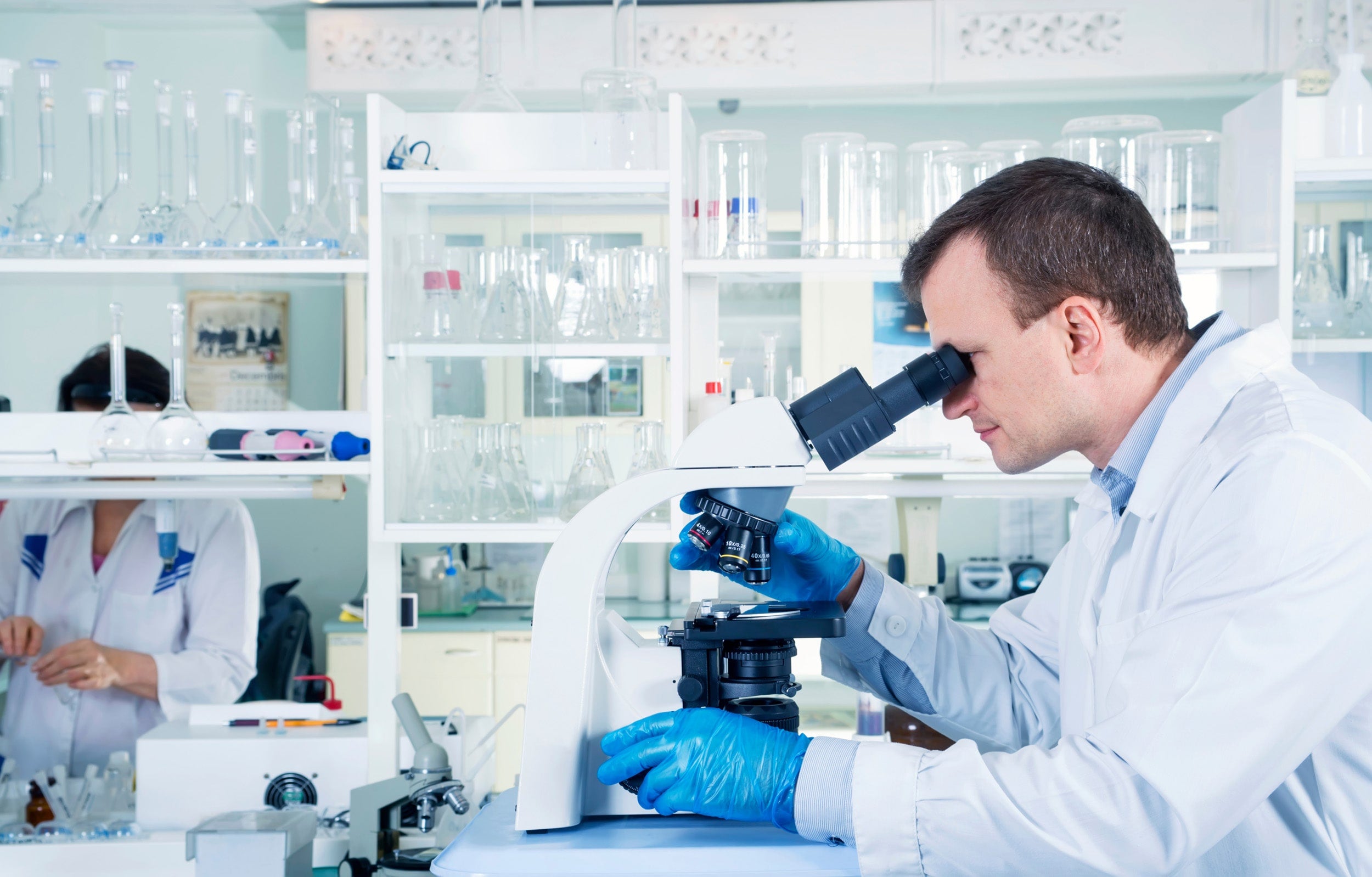Utilize the applied physical science degree in industry, government and non-profit spaces through real-world experience and collaboration with faculty performing cutting-edge research.
Locations
- Statesboro Campus (In Person)
- Armstrong Campus (In Person)
Why Pursue a MS in Applied Physical Science?
- Earn a terminal degree that prepares you to excel in the world of professional science.
- Work alongside faculty doing cutting-edge research in cancer, environmental science, materials science and more.
- Choose an interdisciplinary focus in either Materials and Coatings Science or Chemical and Biochemical Science, with applications in fields as varied as catalysis, pharmaceuticals and alternative energy.
- Work with state-of-the-art instrumentation such as NMR, mass spectrometry, x-ray crystallography and EPR.
- Choose either a thesis or non-thesis route, with the opportunity to complete an internship project in a real-world industrial setting.
The MS in Applied Physical Science at Georgia Southern combines the highest academic qualities of our science program with real-world lessons in application and professional science. Students in this program will learn first-hand how chemistry, biochemistry, materials science, physics, and environmental science contribute to advances in technology, medicine and energy.
Not only will students perform rigorous research alongside nationally-recognized faculty, but they will also hone their skills in presenting information, solving complex problems and evaluating scientific findings against the requirements and constraints of the marketplace.
This program is ideal for students with a high appreciation for science and discovery and a desire to see those values impact our world in a positive way.
Ready to Apply?
What Can You Do With a MS in Applied Physical Science?
Graduates from our applied physical science program go on to apply technical knowledge and skills in the professional world of medicine, pharmaceuticals, materials science, information technology, alternative energy and environmental science.
Where our graduates work:
- SNF Holding Company
- Alcami Corporation
- Gulfstream Aerospace
- 3M
- Addington Place of Alpharetta
- Aligent Technologies
- Alexion Pharmaceuticals, Inc.
- Alliance Transportation Services
- Amyx, Inc.
- Apex Systems
- Ardelyx, Inc.
- Belletets, Inc.
What our graduates do:
- Hubert Agamasu, MAPS in 2024. Hubert used his Masters degree to pursue a career in teaching. He is currently a High School Science teacher in Bulloch County, GA.
- Parker Williams, MAPS in 2023. Parker used his Masters degree to pursue a career in teaching. He is currently a visiting faculty in the Biochemistry, Chemistry and Physics Dept. at Georgia Southern University.
What You’ll Learn
As an applied physical sciences masters student you will carry out research alongside faculty in a variety of fields, including cancer research, coastal plain science, materials science, and computational science. You will learn how to apply your scientific skills and knowledge to real-world problems such that you understand:
- The theory and knowledge of industrial science, including the structure of the chemical industry, green chemistry principles, the value of chemical products and the forces for change and innovation.
- The critical thinking and project management skills to implement creative and effective solutions.
The oral and written communication skills expected of a future professional.
See the Courses and CurriculumBuild Your Experience
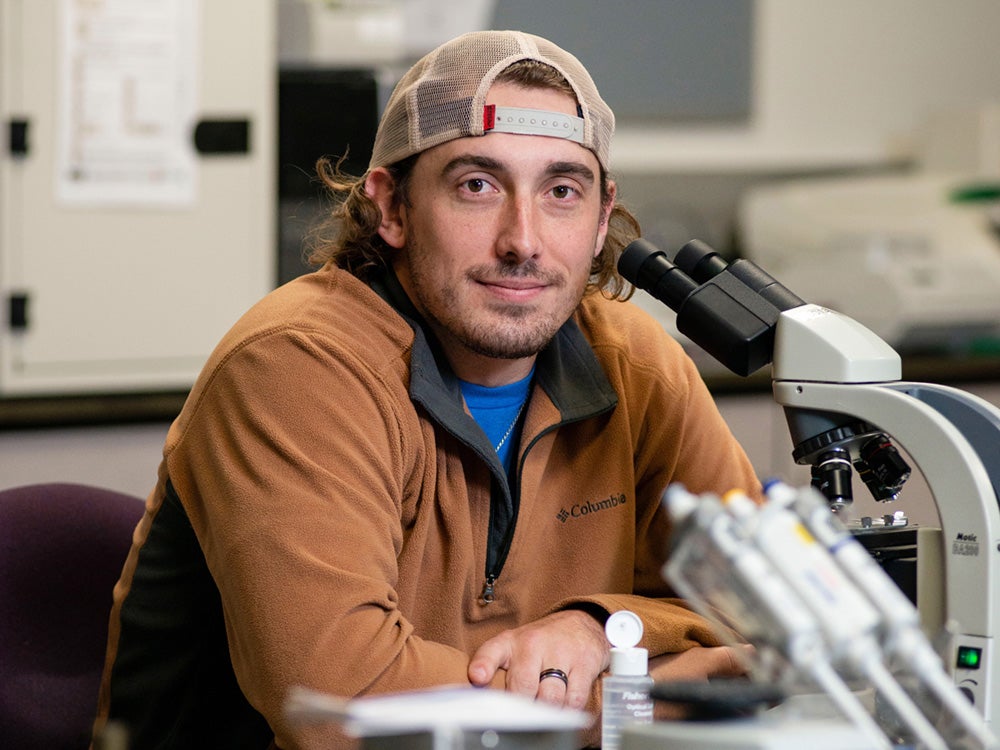
Professional Science P.S.M.
The Professional Science Master’s degree is a non-thesis track that blends core knowledge and applied skills with an understanding of business, as exemplified by the National Professional Science Master Association.
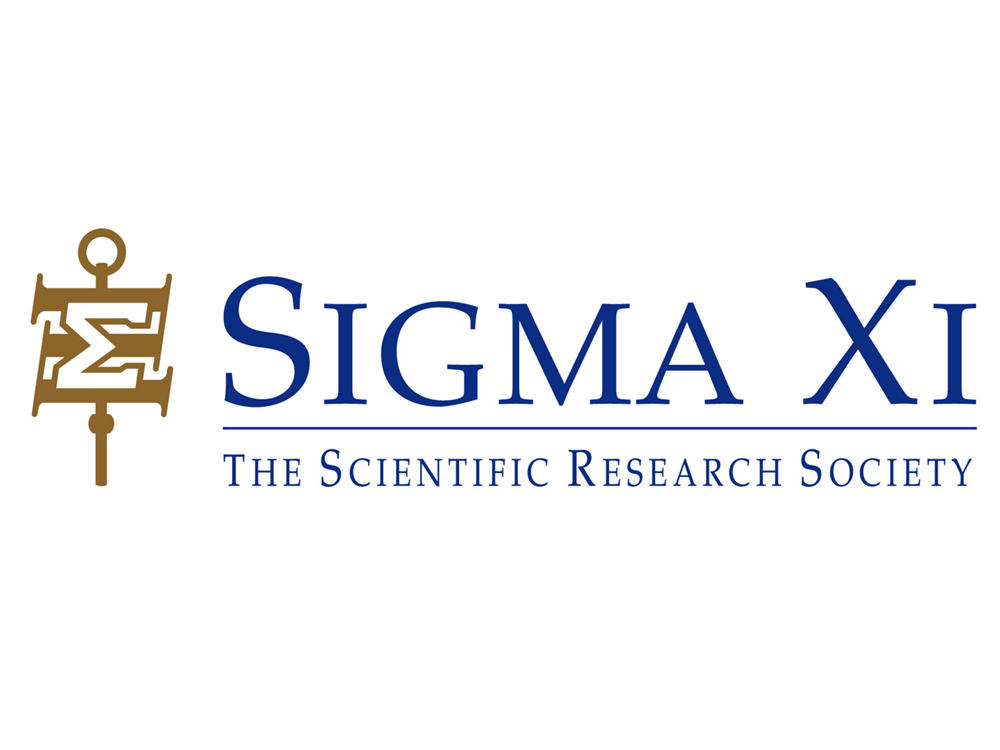
Join Sigma Xi
Sigma Xi is the international honor society of science and engineering. The society’s mission is to enhance research and STEM education, foster integrity in science, and promote the public’s understanding of science.
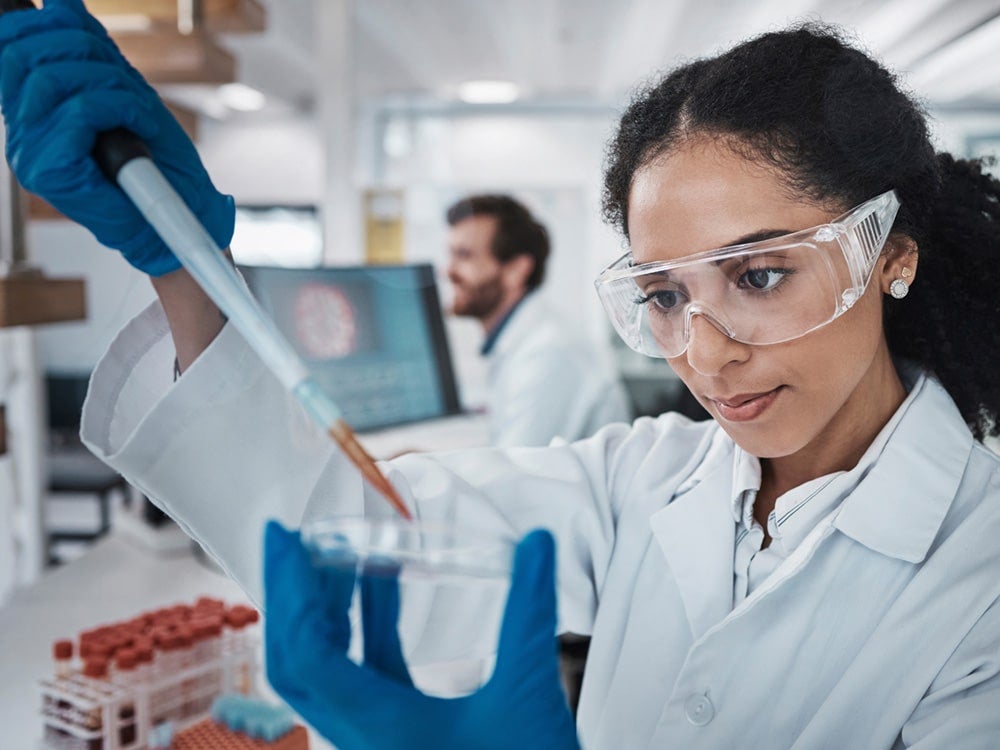
Graduate Assistantships
Qualified students admitted to the master’s degree in applied science program will be awarded a graduate assistantship (GA), which includes a tuition waiver and a stipend.
Take Action
Priority deadline for applications:
- Fall semester start: March 1
- Spring semester start: October 15
Applications received by the deadline will receive full consideration for admission and graduate assistantship positions. Our entering classes will consist of 12 students. Students with a bachelor’s degree in any area of science are considered for admission, but degrees in chemistry and physics are preferred.
Follow these steps to complete the Georgia Southern application:
- Visit our website for the College of Graduate Studies. Complete the requested information and create a login name and password.
- Follow this link and initiate an on-line application. The cost for the application is $50. After completing this on-line form, the application must be supported by transcripts, GRE scores, two letters of recommendation, and a statement of your career goals and research interests. International students should submit scores from the TOEFL exam (Test of English as a Foreign Language), and have transcripts evaluated by World Education Services (WES).
- In order to make it easy for us to follow your progress, we strongly recommend that you correspond with the graduate program director (Dr. Michele Davis McGibony) early in the application process. The graduate program director can give you many useful tips and answer any questions about your application. Although your online application will trigger steady correspondence from the university, it is the graduate program director in physical sciences that can give you the most personalized attention and the most accurate information regarding a final decision on your application.
Requirements
- The graduate program in physical sciences prefers a cumulative GPA of at least 3.0 on all undergraduate work, but students with a lower GPA may be admitted to the program at the discretion of the graduate committee. Students entering this program are expected to have broad training in the chemical and physical sciences and therefore, a bachelor’s degree in chemistry or physics is preferred, but students with a bachelor’s degree in any area of science may be considered.
For more detailed information on graduate admissions at Georgia Southern, visit the website of the College of Graduate Studies or download a university catalog.
Apply as a Graduate StudentStudents who elect to complete the M.S. in Applied Physical Science program under a thesis option will also choose one of the two concentration areas and will enroll in the same three Core science classes as students in the non-thesis track.
The major difference for the thesis option curriculum is the replacement of 15 non-science hours with 12 hours of science courses and the replacement of the final internship or industrial project (3 hours) with a written thesis document which must be defended. This curriculum requires a total of 24 hours of coursework and a research thesis interpreting the results of an independent research project.
Each thesis student is advised by a committee of at least three graduate faculty members, one of whom is the major advisor or committee chair. At the end of the student’s course of study, a public exit seminar describing the thesis must be presented before the Department of Biochemistry, Chemistry and Physics and then defended before the thesis committee.
See the catalog page for a full list of the non-thesis track requirements.
Find a variety of resources for planning your career from our Office of Career and Professional Development.
Materials and Coatings Science
The concentration area in material sciences focuses on modern materials science which includes polymers and coatings, biologically-inspired materials, and hybrid (nano)composites. These materials manifest themselves in diverse areas, such as information technology, alternative energy and healthcare.
Chemical and Biochemical Science
Students will prepare for careers in the chemical or biochemical industry. Emphasis areas include design and synthesis of pharmaceutical materials, toxicology of pharmaceuticals, catalysis, and new energy alternatives.
Program Learning Outcomes
- Theory and Knowledge of Industrial Science: Upon completion of the program, applied physical science masters students will describe the basic structure of the chemical industry, analyze green chemistry principles, formulate the relationship between the chemical product and its value in the marketplace, and explain the forces for change and innovation of the chemical industry.
- Critical Thinking and Project Management: Upon completion of the program, applied physical science masters students will be able to gather and analyze relevant information, evaluate alternatives, and implement creative and effective solutions.
- Communication: Upon completion of the program, applied physical science masters students will demonstrate oral and written communication skills as expected of a future professional in the field such as scientific oral presentations to a wide range of audiences, write successful grant proposals, and write science reports and journal articles.
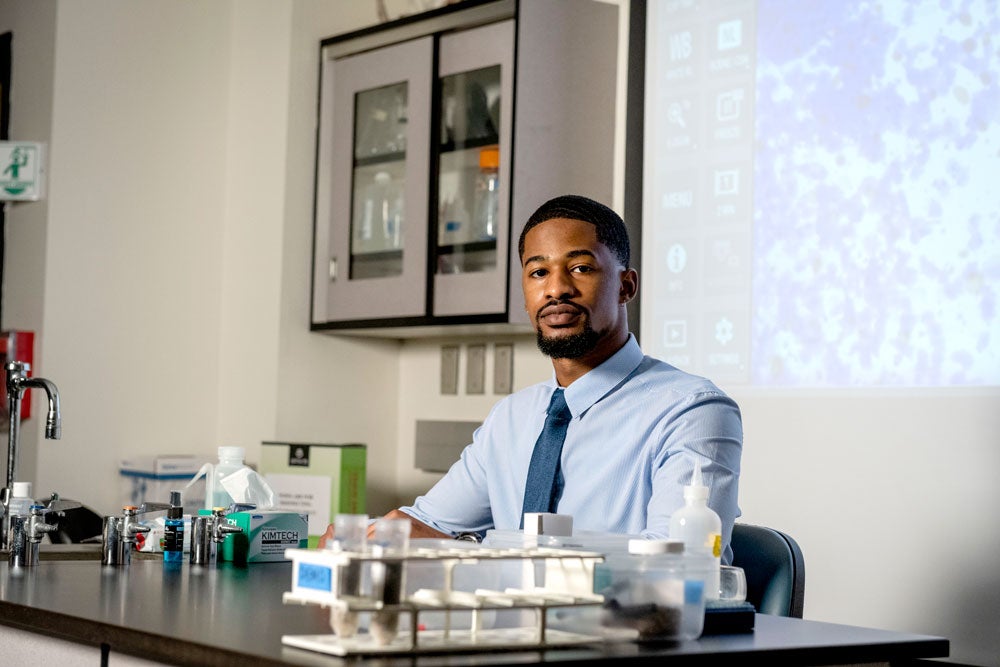
Take the Next Step
Enter the world of applied physical science and make an impact on our future world.
Contact Us
Graduate Program Director
Dr. Michele Davis McGibony
Department of Chemistry
Phone: (912) 478-5919
mdavis@georgiasouthern.edu

